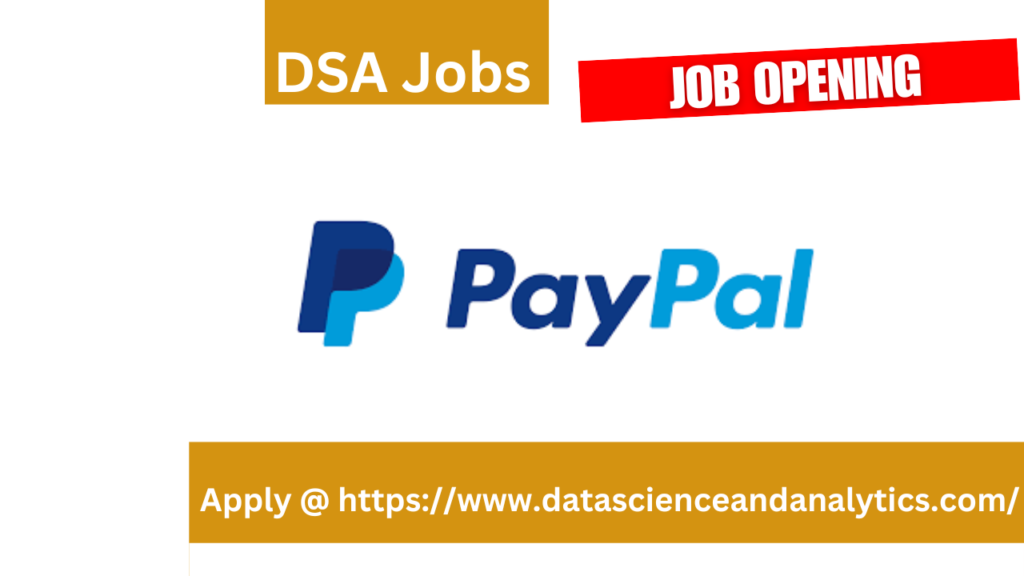Table of Contents
About PayPal
PayPal, founded in December 1998 by Max Levchin, Peter Thiel, and Luke Nosek, initially began as Confinity. Originally designed as a software security company, it pivoted to focus on digital wallets. In March 2000, Confinity merged with X.com, an online banking company founded by Elon Musk. By 2001, the combined entity rebranded as PayPal, and it quickly gained popularity as a reliable online payment system.
The turning point for PayPal came in 2002 when it was acquired by eBay for $1.5 billion. This acquisition allowed PayPal to become the default payment method for eBay transactions, significantly boosting its user base and transaction volume. Over the years, PayPal expanded its services and functionality, transforming from a simple payment processor to a comprehensive digital wallet. It introduced features like personal payments, business transactions, and integration with various e-commerce platforms.
In 2015, PayPal spun off from eBay to become an independent publicly traded company. This move marked a new era of growth and innovation. Today, PayPal operates in over 200 markets worldwide and supports 25 currencies, making it a significant player in the global financial ecosystem. Its platform allows users to send and receive money, make online purchases, and manage funds through a secure and user-friendly interface.
PayPal’s evolution is marked by several key milestones. It acquired Braintree in 2013, which included the popular mobile payment service Venmo. In 2018, PayPal acquired iZettle, enhancing its presence in the point-of-sale market. These strategic moves have helped PayPal diversify its offerings, catering to both individual consumers and businesses of all sizes.
Today, PayPal provides a diverse array of services, from personal payments and business transactions to integration with a multitude of e-commerce platforms. It also offers credit products, working capital loans, and fraud protection services. PayPal’s continual innovation and expansion have solidified its position as a leader in the digital payment industry, contributing significantly to the way people and businesses handle financial transactions globally.
For More Read This :
PayPal Job Recruitment 2024 Off Campus Drive
| Company Name : PayPal Inc. |
| Website : https://www.paypal.com/ |
| Accenture Job Role : Data Scientist |
| Work Location : BENGALURU |
| Job Type : Full Time |
| Experience : 5+ years of experience |
| Qualification : Bachelor’s/Master’s degree in ( Analytics, Statistics, Mathematics, Economics or Engineering) or equivalent field experience |
| Batch : Not Mention |
| Package : Not Mention |
PayPal Job Description
At PayPal (NASDAQ: PYPL), we believe that every person has the right to participate fully in the global economy. Our mission is to revolutionize commerce globally to make moving money, selling and shopping, personalized and secure.
Job Description Summary:What you need to know about the role:
This role offers a unique opportunity to learn about all Global Revolve Consumer Credit portfolios in PayPal and influence Credit Risk policies and capabilities for these products.
Meet our team:
Global Revolve Analytics and Insights team is a part of Global Credit Risk organization in PayPal. We are looking for a Data Scientist for our team to be responsible for Credit Risk data analysis and reporting infrastructure to support all analytical needs.
Job Description:
Your way to impact –
In your role, you will be focusing on analysing rich Consumer Credit Risk and PayPal wallet data to identify emerging Credit Risk trends and generate actionable insights to help drive underwriting and portfolio management decisions for our Revolve Consumer Credit products.
Your day to day –
In your day to day role you will:
- Perform deep dive analysis of Consumer Credit portfolios in US and UK to provide actionable insights to portfolio management and senior leadership teams.
- Develop and continuously enhance reporting and monitoring capabilities to detect emerging credit risk trends and mitigate credit risk exposure in the revolve consumer lending portfolios
- Analyze large and complex data from multiple sources both internal and external to define requirements for new capabilities and product features to support portfolios growth and profitability.
- Collaborate with cross functional teams to support business critical initiatives for Consumer Credit organization.
- Translate ambiguous, unstructured business problems into actionable data-driven analyses.
- Support multiple projects at the same time in a fast-paced, results-oriented environment.
- Keep up to date with industry trends, best practices, and emerging risks related to consumer lending.
What do you need to bring –
- Bachelor’s/Master’s degree in a quantitative field (such as Analytics, Statistics, Mathematics, Economics or Engineering) or equivalent field experience
- 5+ years of experience working in a credit or credit supporting function and 3+ years of experience in relevant positions (e.g., Data or Decision Scientist, Data Analyst, Statistician, Risk Management, etc.)
- Experience analyzing very large, complex, and multi-dimensional datasets to identify trends and draw meaningful and accurate conclusions.
- Analytical skills and ability to approach problems in a quantitative and qualitative manner, and partner with the business to understand their needs, and drive solutions.
- Effective communication skills, in both written and verbal formats, with senior executive-level leaders.
- The capability to execute in a fast paced, high demand, environment while balancing multiple priorities.
- Proficiency in using SQL/SAS/R/Python/KnowledgeSeeker
- Experience with data visualization
- Excel, Word, and PowerPoint proficiency
Additional Job Description:
Subsidiary: PayPal
Travel Percent: 0
Our Benefits:
At PayPal, we’re committed to building an equitable and inclusive global economy. And we can’t do this without our most important asset—you. That’s why we offer benefits to help you thrive in every stage of life. We champion your financial, physical, and mental health by offering valuable benefits and resources to help you care for the whole you.
We have great benefits including a flexible work environment, employee shares options, health and life insurance and more. To learn more about our benefits please visit https://www.paypalbenefits.com
Any general requests for consideration of your skills, please Join Our Talent Community.

How To Apply for PayPal Data Scientist Job?
All interested and eligible candidates can apply for PayPal Data Scientist Job online by the following link as soon as possible
- Visit the PayPal Jobs & Careers page through the provided link.
- Browse available positions and select the Data Scientist/Data Analyst role.
- Review the PayPal job description and ensure you meet the eligibility criteria.
- Click on the “Apply For This Job” button to start the application process.
- Fill in your personal details, educational background, and work experience accurately.
For More Follow Us :
How PayPal Works
PayPal operates as an online financial service that allows users to send and receive money electronically. The initial step involves setting up a PayPal account, which requires basic personal information such as an email address and a secure password. Once the account is created, users can link it to their bank accounts or credit cards. This linkage enables seamless transactions, whether for personal use or business purposes.
To send money, users simply enter the recipient’s email address or mobile number, specify the amount, and complete the transaction. Similarly, receiving money is straightforward; the sender’s payment arrives in the recipient’s PayPal account, where it can be transferred to their bank account or used for other PayPal transactions.
PayPal’s security features play a pivotal role in establishing user trust. Utilizing advanced encryption technology, PayPal ensures that all transactions are securely processed. Additionally, PayPal’s robust fraud protection mechanisms monitor transactions for suspicious activity, providing an extra layer of security. These measures significantly reduce the risk of unauthorized access or fraudulent transactions, thus fostering a secure environment for users.
PayPal accommodates various transaction types, including personal payments, business transactions, and donations. Each type has its own associated fee structure. For example, personal transactions between friends and family are typically free if funded by a bank account or PayPal balance, whereas business transactions may incur fees based on the transaction amount and currency conversion rates.
One of PayPal’s standout features is its international capability. Users can send and receive money globally, with PayPal handling currency conversions seamlessly. This is particularly beneficial for businesses engaged in international trade, as PayPal supports transactions in multiple currencies, ensuring that users receive and send funds in their preferred currency.
In essence, PayPal’s comprehensive suite of features, from secure transactions to international capabilities, makes it a versatile and trustworthy platform for personal, business, and charitable financial activities.
The Role of Data Science at PayPal
Data science is integral to PayPal’s operations, playing a pivotal role in optimizing various aspects of the company’s services. At the core of PayPal’s data-driven strategy is the enhancement of security through robust fraud detection mechanisms. Leveraging advanced machine learning algorithms, PayPal data scientists analyze transaction patterns and behavioral data to identify and mitigate potential fraud. This proactive approach not only safeguards user accounts but also maintains the integrity of the platform.
In addition to security, data science at PayPal significantly contributes to crafting personalized user experiences. By utilizing big data analytics, data scientists can decipher user preferences and purchasing behaviors. This enables the development of tailored recommendations and promotions, enhancing user engagement and satisfaction. For instance, machine learning models are employed to predict the products or services a user might be interested in, thereby providing a more customized and relevant user interface.
Customer support is another domain where data science has a profound impact. PayPal data scientists utilize artificial intelligence to streamline and improve customer service operations. AI-driven chatbots and virtual assistants facilitate faster resolution of customer queries, reducing wait times and improving overall service efficiency. Additionally, predictive analytics are used to anticipate and address potential customer issues before they escalate, ensuring a smoother user experience.
PayPal’s data scientists employ a suite of sophisticated tools and technologies to achieve these outcomes. Machine learning frameworks like TensorFlow and PyTorch, big data platforms such as Hadoop and Spark, and AI techniques are fundamental to their toolkit. These technologies enable the processing and analysis of vast amounts of data, leading to actionable insights and strategic decision-making.
One notable example of a data-driven project at PayPal is their dynamic risk management system, which has significantly reduced fraudulent activities while minimizing false positives. Another impactful initiative is the real-time personalization engine that enhances user interaction by delivering contextually relevant content and recommendations. These projects underscore the critical role of data science in driving PayPal’s efficiency and elevating customer satisfaction.
A Day in the Life of a PayPal Data Scientist
Working as a data scientist at PayPal provides a diverse array of services, from personal payments and business transactions to integration with a multitude of e-commerce platforms. A typical day begins with a thorough review of ongoing projects and prioritizing tasks based on deadlines and impact. Data scientists start by collecting and cleaning data, ensuring its accuracy and consistency. This meticulous process is crucial as it forms the foundation for building robust models.
Once the data is prepared, the next step involves exploratory data analysis (EDA). This step allows data scientists to uncover patterns, anomalies, and trends that might influence the model’s performance. Following EDA, they dive into model building. Utilizing advanced algorithms and machine learning techniques, data scientists create models tailored to solve specific business problems, whether it’s fraud detection, customer segmentation, or transaction prediction.
Model testing and validation are integral parts of the workflow. Rigorous testing ensures that models are reliable, accurate, and scalable. Data scientists employ various validation techniques to assess the model’s performance, iterating and refining as necessary. This iterative process is essential to maintaining the high standards expected at PayPal.
Collaboration is a cornerstone of a data scientist’s role at PayPal. Regular interactions with engineering teams help in the seamless integration of models into the production environment. Product management teams provide insights into customer needs and business objectives, guiding the model development process. Compliance teams ensure that all data handling and model deployment adhere to regulatory standards, safeguarding customer data and maintaining trust.
Skills and qualifications for a PayPal data scientist include proficiency in programming languages like Python and R, a solid understanding of statistical methods and machine learning algorithms, and experience with big data technologies. Strong problem-solving abilities and effective communication skills are also vital, enabling data scientists to convey complex findings to non-technical stakeholders.
Career growth opportunities within PayPal are abundant. Data scientists can advance to senior roles, lead projects, or transition into specialized areas such as AI research or data engineering. Anecdotes from current and former PayPal data scientists highlight the rewarding nature of the role. One data scientist shared, “The collaborative environment and the challenging projects at PayPal have significantly contributed to my professional growth.”
FAQs
What services does PayPal offer?
PayPal provides a range of financial services including online money transfers, digital wallets for personal and business use, integration with e-commerce platforms, credit products, and fraud protection services.
How does PayPal ensure security for its users?
PayPal employs advanced encryption technology and robust fraud protection mechanisms to secure transactions. This includes monitoring transaction patterns and behavior using data science and machine learning to detect and prevent fraudulent activities.
What role does data science play at PayPal?
Data science at PayPal is crucial for enhancing security through fraud detection, optimizing user experiences through personalized recommendations, improving customer support with AI-driven solutions, and driving strategic decisions based on data insights.
What are some milestones in PayPal’s history?
Founded in 1998 as Confinity, PayPal merged with X.com in 2000, rebranded as PayPal in 2001, and was acquired by eBay in 2002. In 2015, PayPal spun off from eBay and became an independent publicly traded company, marking a new phase of growth and innovation.
How does PayPal support international transactions?
PayPal supports transactions in over 200 markets and 25 currencies, facilitating global money transfers and currency conversions seamlessly. This capability is beneficial for businesses engaged in international trade and individuals sending money internationally.
What is a typical day like for a data scientist at PayPal?
A data scientist at PayPal starts with reviewing ongoing projects, collecting and cleaning data, performing exploratory data analysis (EDA), building and testing machine learning models, collaborating with teams for model integration, and ensuring compliance with regulatory standards in data handling and model deployment.
What are the main responsibilities of a Data Scientist at PayPal’s Global Revolve Analytics and Insights team?
Analyze Consumer Credit Risk and PayPal wallet data to identify trends, provide insights for underwriting and portfolio management decisions, and develop reporting infrastructure.
What qualifications are needed for the Data Scientist role at PayPal?
Bachelor’s/Master’s degree in a quantitative field, 5+ years in credit or related roles, proficiency in SQL/SAS/R/Python, and experience with data visualization.
What skills are crucial for success in this role?
Strong analytical ability, effective communication with senior leaders, capability to manage multiple projects in a fast-paced environment, and proactive problem-solving skills.
What is the work environment like for a Data Scientist at PayPal?
Dynamic and results-oriented, involving collaboration across teams, handling multiple priorities, and staying updated with consumer lending industry trends.






